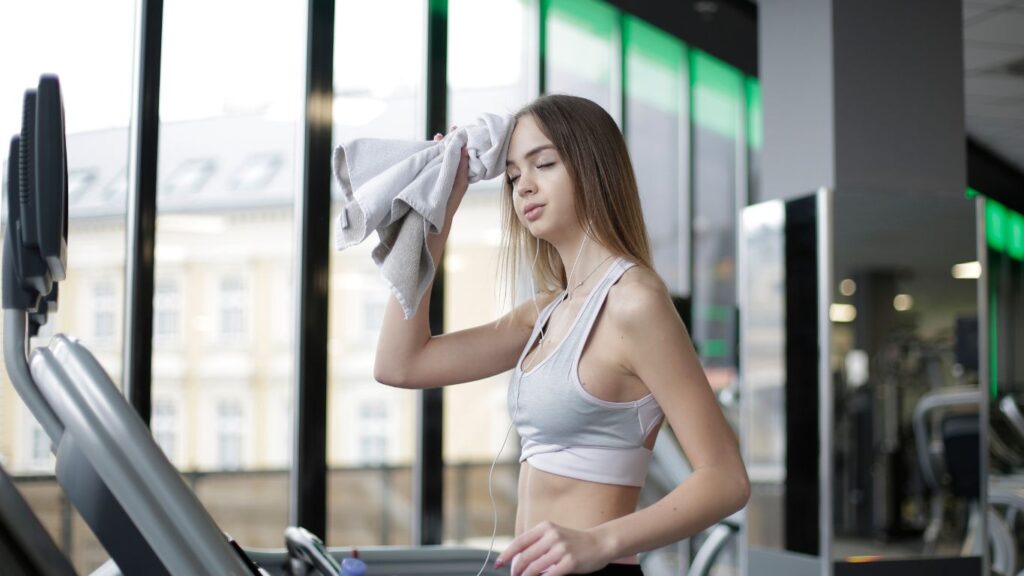Sweat often carries a negative connotation, associated with discomfort or social embarrassment. However, when it comes to exercise, sweating is not just a natural response but a beneficial one. In this blog, we dive into the science behind sweat, particularly how exercise-induced perspiration (sweating) can significantly enhance your health.
The Benefits of Exercise-Induced Sweating
- The Physiology of Sweating
- Types of Sweat Glands
- Detoxification Through Sweat
- Sweat and Skin Health
- Mental Health Benefits
- Hydration and Electrolyte Balance
- Immune System Boost
- Weight Management and Sweating
- Sweat and Cardiovascular Health
- Myths About Sweating
- Cultural and Historical Aspects of Sweating
- Sweating in Different Climates
- Exercise Recommendations for Optimal Sweating
- Safety Tips for Sweating Through Exercise
- The Role of Nutrition
- Conclusion
The Physiology of Sweating
Sweating is the body’s natural cooling mechanism, essential for maintaining a stable internal temperature, especially during physical exertion. When your body temperature rises, your sweat glands are triggered to release moisture, primarily water and salt, onto the skin’s surface. As this moisture evaporates, it cools your body, preventing overheating.
Types of Sweat Glands
There are two primary types of sweat glands: eccrine and apocrine. Eccrine glands are found all over the body and open directly onto the skin’s surface. They produce a clear, odorless fluid, primarily during physical activity. Apocrine glands, located in areas like the armpits and groin, are responsible for the sweat that can cause body odor when it interacts with bacteria on the skin.
Detoxification Through Sweat
Sweating can aid in detoxification. While the liver and kidneys are the primary detox organs, sweating can eliminate trace amounts of toxins like heavy metals and BPA. However, it’s important to note that sweating isn’t a major detoxification pathway, but it does complement the body’s natural processes.

Sweat and Skin Health
Sweating has a cleansing effect on the pores, potentially reducing acne and skin blemishes. As sweat travels to the skin’s surface, it can remove dirt and bacteria. Regular sweating can improve overall skin health, lending a clearer and more vibrant complexion.
Mental Health Benefits
Exercise-induced sweating can improve mental well-being. Physical activity stimulates the production of endorphins, the body’s natural mood lifters. The act of sweating itself can be a form of catharsis, helping to reduce stress and anxiety.
Hydration and Electrolyte Balance
Sweating leads to fluid loss, making hydration essential. When you sweat, you’re not just losing water but also electrolytes like sodium and potassium, crucial for muscle function and overall health. Proper hydration, before, during, and after exercise, ensures that these lost fluids and electrolytes are replenished.
Immune System Boost
There’s evidence to suggest that sweating can boost the immune system. Research indicates that certain antimicrobial peptides in sweat, like dermcidin, can combat bacteria, fungi, and viruses. Regular exercise and sweating may, therefore, offer an added layer of protection against infections.

Weight Management and Sweating
While sweating itself doesn’t burn fat, the exercise that causes sweating often does. Cardiovascular and strength-training exercises that induce sweating can contribute to weight loss or management by burning calories.
Sweat and Cardiovascular Health
Sweating through exercise is a sign of physical exertion and cardiovascular effort. Regular cardiovascular exercise strengthens the heart and improves blood circulation, reducing the risk of heart disease.
Myths About Sweating
There are several myths surrounding sweat and exercise. One common misconception is that more sweat equals a more effective workout. While sweat is a sign of physical exertion, its amount is influenced by factors like temperature and genetics, and doesn’t directly correlate with workout effectiveness.
Cultural and Historical Aspects of Sweating
Throughout history and in various cultures, sweating has been used for therapeutic purposes. Saunas, steam baths, and sweat lodges have been employed not just for relaxation, but also for perceived health benefits.

Sweating in Different Climates
The amount and impact of sweating can vary in different climates. In hot and humid environments, sweat evaporation is slower, making it harder for the body to cool down. Conversely, in dry climates, sweat evaporates quickly, which can lead to more rapid cooling but also faster dehydration.
Exercise Recommendations for Optimal Sweating
To maximize the health benefits of sweating, regular aerobic exercise like running, cycling, or swimming is recommended. These activities should be performed at a moderate intensity for at least 150 minutes per week, as advised by health authorities.
Safety Tips for Sweating Through Exercise
While sweating has many benefits, it’s important to exercise safely. This includes staying hydrated, wearing breathable clothing, and listening to your body to avoid overheating and dehydration.
The Role of Nutrition
Nutrition plays a vital role in how your body responds to exercise and sweating. A balanced diet rich in fruits, vegetables, lean proteins, and whole grains supports the body’s needs during physical activities.

Conclusion
Sweating through exercise is more than just a sign of physical effort; it’s a complex, beneficial process that enhances various aspects of health. From detoxification and skin health to mental well-being and immune system support, the benefits of sweating are wide-reaching. So the next time you break a sweat, remember that you’re not just working out; you’re boosting your overall health and well-being.
Also read: Maximizing Fitness: The Best Workouts for Time-Efficient Exercise
